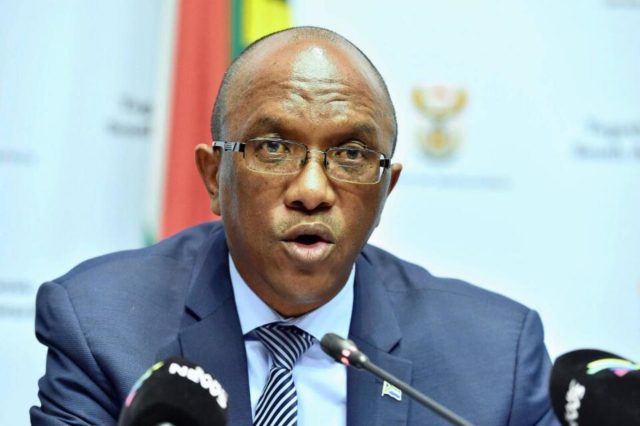“If you don’t, you might feel it in your own back pocket”
Auditor-General Kimi Makwetu said a new accountability tool introduced in April has so far brought to light irregular expenditure of R2.81 billion on the part of eight state entities.
Makwetu said the bulk of that sum, R2.2 billion, was incurred by the Passenger Rail Association of SA (Prasa), confirming the reported losses the agency suffered as a result of irregularities in its purchase of new locomotives.
In total, 28 material misstatements were picked up in the accounts of the eight entities in question, following the amendment of the Public Audit Act to enable the auditor-general to report on material irregularities and to allow direct action against accounting officers who fail to deal with these. This includes issuing a certificate of debt against the accounting officer.
The time frame for accounting officers to reverse transactions or revert money to the public entity’s coffers was provisionally three months, but he said this was dependent on the nature of the transaction and how complex restitution was.
Makwetu said he foresaw that accounting officers would exercise greater prudence as the new rules meant that “if you don’t, you might feel it in your own back pocket”. The aim was to prevent irregular expenditure, he stressed, as trying to recover lost funds was also costly to the state.
He has for years bemoaned the fact that there is little or no consequence for flouting proper accounting processes in public entities, and therefore no incentive for accounting officers to stem the waste of public funds he reports on annually.
He urged government leaders and legislatures to take urgent steps to halt what he termed “the trend of disappointing audit results”, again evidenced in the figures for the 2018/19 financial year.
The latest report showed that irregular expenditure increased to R62.60 billion from R51 billion in the previous financial year, and Makwetu cautioned that the sum might be higher had all relevant information been available to him.
“It is worth noting that the amount could be even higher, as 34% of the auditees were qualified because the amount disclosed was incomplete and/or that they had incurred irregular expenditure that the full amount was unknown.”
He added that his office was unable to audit contracts worth a total of R2.33 billion because of incomplete information.
Unauthorised expenditure decreased considerably by 23% in 2018/19 but Makwetu said the number of departments that were guilty of this had increased, and this was concerning.
He added that a major concern was the financial health of departments, with 13 disclosing in their financial statements that they might find it difficult to continue operating.
Trends in wasteful expenditure continued as before. In the past two financial years, there were 184 auditees who incurred losses in this regard, and the total sum lost increased by seven percent in the past year. Makwetu said the increase was mainly the result of the department of energy losing R110 million and the Free State department of health R101 million.
“Government cannot afford to lose money because of poor decision-making, neglect and inefficiencies; however, we continue to see a rise in fruitless and wasteful expenditure.”
Likewise, the audit outcomes of state-owned enterprises who are audited by the auditor-general’s office continued to deteriorate, with these disclosing R1.4 billion in irregular expenditure.
Again, the AG said he suspected that the real figure could be higher since Denel, the SABC, South African Airways and the South African Forestry Company received qualifications on the basis that their disclosure of irregular expenditure was incomplete.
Irregular expenditure of those not audited by Makwetu’s office, which include Transnet and Eskom, totalled R57 billion.
As far as provinces are concerned, KwaZulu-Natal still reflected the highest irregular expenditure with R12.4 billion, while the Western Cape continued to produce the best results with the least wasteful and irregular expenditure.
Makwetu said the Western Cape has for five years consistently had good audit outcomes and attributed this to provincial authorities “instilling a culture of accountability and good governance”.
His office audits 432 state entities.
Of the 28 material irregularities identified in eight entities, 10 were in the department of human settlements in the Free State, with Prasa accounting for the second highest number in any entity with nine.
The total damage resulting from these, included R438 million lost as a result of unfair or uncompetitive procurement processes that lead to over-pricing of goods and services.








